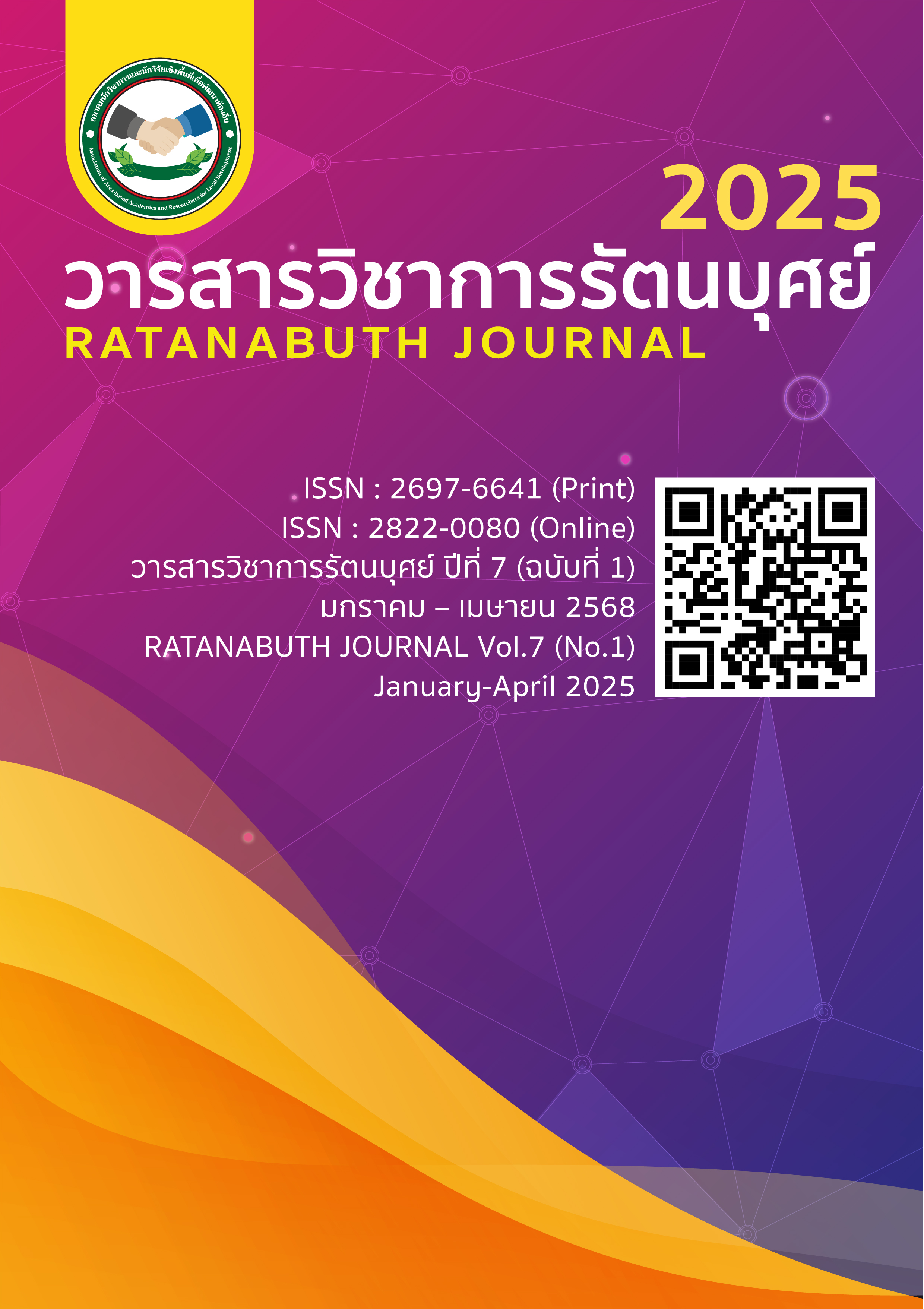Enhancing Digital Competencies Towards Becoming Professional Educational Administrators Enhancing Digital Competencies Towards Becoming Professional Educational Administrators
Main Article Content
Abstract
This article presents the enhancement of digital competence to become a professional school administrator. Strengthening the digital competency of school administrators is essential. Administrators must have knowledge and understanding of communication and computer technology to appropriately and efficiently integrate them into school management.
However, digital competence among school administrators still faces several obstacles that impact management efficiency. These challenges hinder the full development of digital skills and highlight a lack of digital literacy and expertise in using technology. Enhancing digital competency will help administrators develop skills and confidence in using digital technology appropriately and effectively. The key methods for enhancing digital competency among school administrators include 1) promoting digital literacy and the use of information technology 2) encouraging knowledge and experience management for digital organization administration 3) supporting the evaluation of digital organization performance 4) enhancing human resource management skills in digital organizations 5) strengthening problem-solving skills related to digital issues and relevant legal matters and 6) developing analytical thinking skills regarding digital applications in educational institutions when school administrators possess digital competency, schools will operate more efficiently. Administrators can lead in promoting teachers and staff to develop their technological skills, enabling them to integrate technology into teaching and learning management. Additionally, digital competency supports administrative tasks that facilitate teaching and learning, ensuring that students have equitable access to technology and greater learning opportunities.
Article Details

This work is licensed under a Creative Commons Attribution-NonCommercial-NoDerivatives 4.0 International License.
References
กณิชชา ศิริศักดิ์. (2559). การวิจัยหลักสูตรวิชาชีพครูเพื่อพัฒนาแนวทางการส่งเสริมสมรรถนะดิจิทัล.วิทยานิพนธ์ปริญญามหาบัณฑิต. กรุงเทพฯ: จุฬาลงกรณ์มหาวิทยาลัย.
จิณณวัตร ปะโคทัง. (2561). ภาวะผู้นำยุคดิจิทัลสำหรับผู้บริหารสถานศึกษามืออาชีพ. อุบลราชธานี: มหาวิทยาลัยราชภัฏอุบลราชธานี.
ภูมินทร์ ชาลีคาร, และ นิยดา เปี่ยมพืชนะ. (2567). องค์ประกอบสมรรถนะดิจิทัลของผู้บริหารสถานศึกษาในยุค Digital Disruption สังกัดสำนักงานเขตพื้นที่การศึกษามัธยมศึกษาขอนแก่น. วารสารเสฏฐวิทย์ปริทัศน์, 4(2), 495-510.
ภคพร เลิกนอก. (2563). การบริหารสถานศึกษาในยุคดิจิทัล สำหรับผู้บริหารสถานศึกษา สังกัดสำนักงานเขตพื้นที่การศึกษาประถมศึกษาขอนแก่น เขต 4. วารสารบัณฑิตศึกษามหาจุฬาขอนแก่น, 7(2), 150–166.
มานะ ครุธาโรจน์. (2563). กลยุทธ์การพัฒนาสมรรถนะผู้บริหารสถานศึกษาขั้นพื้นฐานยุคการศึกษา 4.0. วารสารสังคมศาสตร์และมานุษยวิทยาเชิงพุทธ, 5(9), 351–369.
สุพัตรา นามขาว, บรรจบ บุญจันทร์, และ อริสา นพคุณ. (2567). กลยุทธ์การพัฒนาสมรรถนะดิจิทัลของผู้บริหารสถานศึกษา. วารสารสมาคมพัฒนาวิชาชีพการบริหารการศึกษาแห่งประเทศไทย (สพบท.), 6(3), 45–60.
สำนักงานคณะกรรมการดิจิทัลเพื่อเศรษฐกิจและสังคมแห่งชาติ. (2562). แผนพัฒนาสมรรถนะดิจิทัลของคนไทย. กรุงเทพมหานคร: สำนักงานคณะกรรมการดิจิทัลเพื่อเศรษฐกิจและสังคมแห่งชาติ.
อรวรรณ กันละนนท์. (2565). ทักษะด้านดิจิทัลของผู้บริหารโรงเรียนมัธยมศึกษา. วารสารวิชาการสถาบันพัฒนาพระวิทยากร, 5(3), 45–60.
European Union. (2006). Recommendation of the European Parliament and of the Council of 18 December 2006 on key competences for lifelong learning (2006/962/EC). Luxembourg: Official Journal of the European Union.
Ferrari, A. (2012). Digital competence in practice: An analysis of frameworks. Luxembourg: Publications Office of the European Union.


